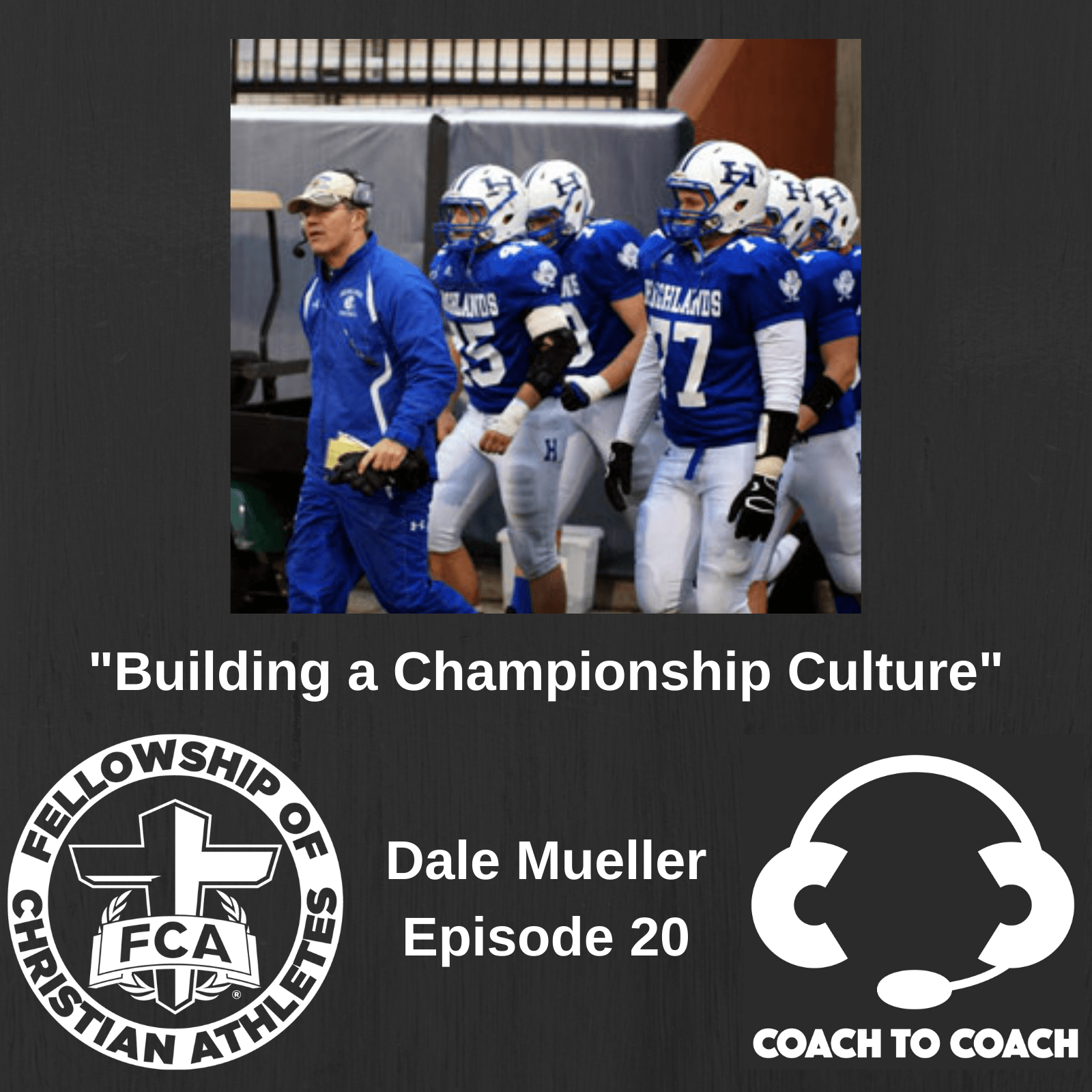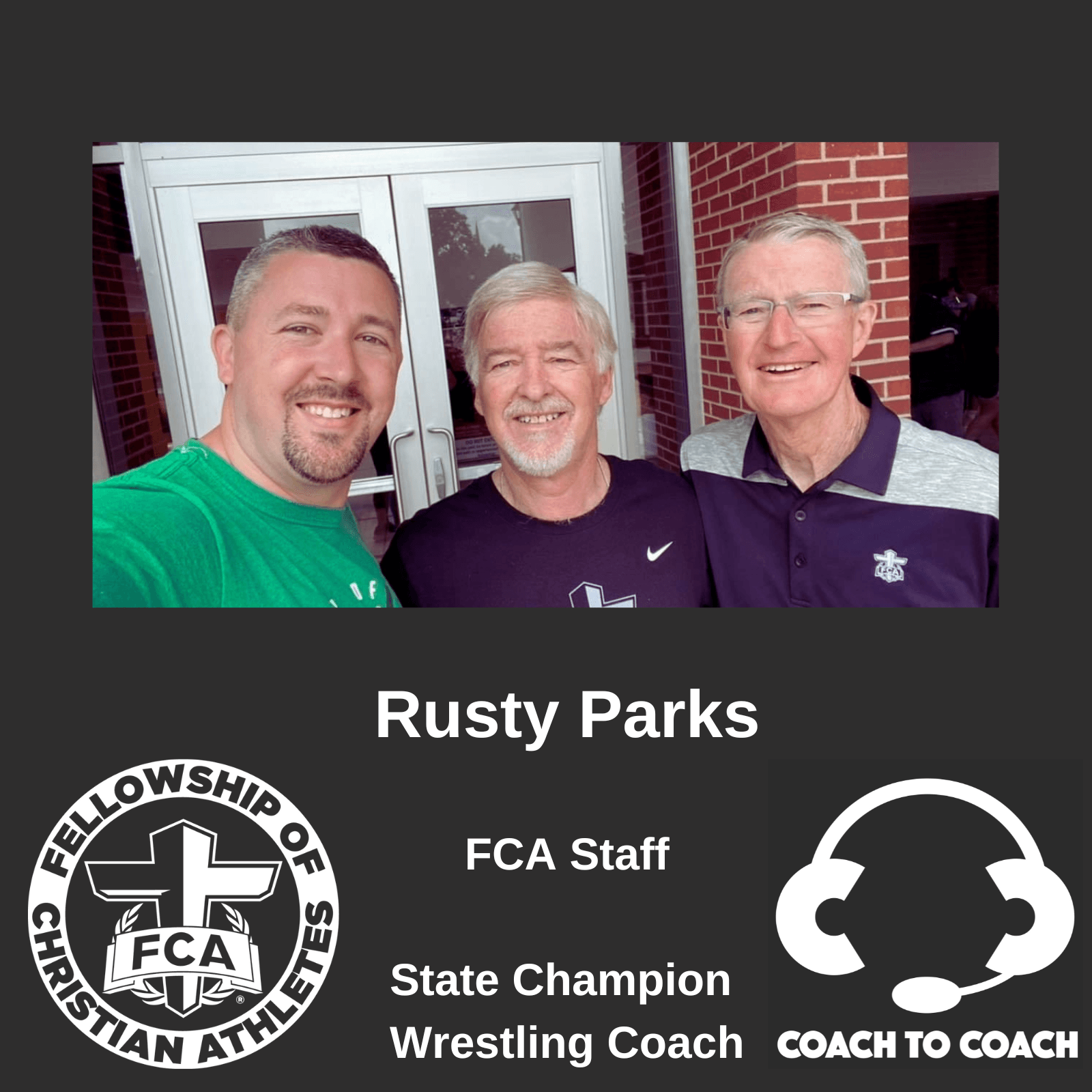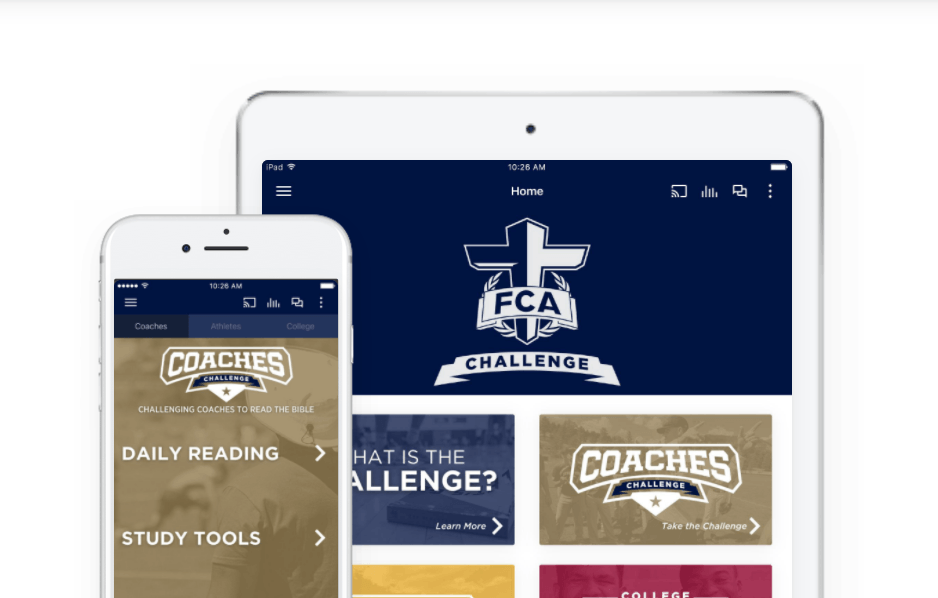"Building a Championship Culture" with Dale Mueller - Part 1
Nate Sallee • August 11, 2020
Ep. 20: Building a Championship Culture
Top apps to listen with (or stream below)
Episode Info
Subscribe so you don't miss out on future episodes!
Dale Mueller hops on the podcast for the first of TWO episodes.
Yes, so much to unpack with Coach Mueller that we blocked out multiple episodes.
Dale was a collegiate baseball player at Cornell University and is most recognized in NKY and beyond as a very successful head football coach.
After multiple coaching stops his longest tenure was a Highlands High School where he amassed several state championships.
Topics include:
- How his "why" behind coaching drove him
- Why he didn't cut players
- One surprising reason he picked football as his sport to coach
- His strategy for youth camps
and much more!
Please share with at least one person you think would appreciate it!
Nate (00:00):
This is the coach to coach podcast. Episode number 20..Game time
Music (00:18):
[Inaudible].
Nate (00:18):
Hey, what's going on guys. Welcome to the coach to coach podcast, where we believe every kid deserves a coach that cares, and every coach deserves someone in their corner. I'm your host, Nate Sallee. And this podcast is sponsored by the Northern Kentucky fellowship of Christian athletes. We've been so honored and excited with the feedback and the response we've gotten so far. We're 20 episodes in and wow. What about the wisdom we've been able to capture so far and talk with many of you right here in Northern Kentucky. Hey, if you don't want to miss any of the new episodes coming up, you can go online to nkyfca.org/podcast And join our coaches email list. And we'll alert you of new podcasts episodes and upcoming coaches events. Or you can also subscribe in iTunes or whatever app you're listening to that way. You'll get a heads up on all the new content coming your way. Well Hey, for this edition, we try to come out on the first and 15th of each month. This next month is going to be a two-part series with coach Dale Mueller. Dale is a local legend in the Northern Kentucky area, especially in the football world. He's been at Newport, Withrow, and the most notably Highlands, high school, consecutive state titles. I don't want to wait, have you wait any longer? Let's hop in with coach Dale Mueller.
Nate (01:32):
Well, I wanted to kind of start off with A lot of people in the Northern Kentucky area. I'm sure at least know your name, but we'd love to just get your listeners just a quick backstory on, on Dale. Kind of look at your story and then how you got into coaching in the first place.
Dale (01:47):
Well, I, my family was originally from Newport. We moved to Fort Thomas when I was four years old. I always loved sports. I was a baseball, football, basketball player. I really wasn't that good in basketball. So gave that up after my freshman year my, my parents were divorced. My mom was really my role model. I can remember her being an elementary school teacher in silver Grove schools. If I had a day off, I would go to school with her and just spend the day with her. I can remember her teaching some students and gosh, one young guy coming to school with his toe, just almost cut off. His whole jeez foot was all bloody. His sock was just code, you know, just, just all red with blood. And it was before you worried about bloodborne pathogens. And my mom took his sock off and you know, my mom just adored me, but she loved this kid. Like she loved me and, and washed his foot, got the principal there. I mean, I just love what my mom did is a teacher. And so I had just had great respect for her. I really always wanted be a teacher. Like my mother, my mom got cancer when I was in high school breast cancer and battled it for 10 years, it spread to her brain. She went on to be a elementary school librarian in the Covington school system, and just wanted to be such a, a great teacher towards the end of her life. She didn't want to give up being a librarian, but the cancer was giving her having a problem with her balance. So the principal would actually meet her on the first floor, get behind her and literally push her butt up the steps so she could get to her library. She would do, her deal, you know, being a librarian and then come home and go and do it again the next day. And so my mom never really wanted me to be a teacher because she always said why for a man, you didn't make enough money and you couldn't really make a living, being a teacher and support your family. So I went to college. My degree was in mechanical engineering. I worked for Lincoln electric company makes welding equipment, but then my mom died when she was 54. I was 27 and I decided I was going to become a teacher and called Mike Murphy, who was my high school football coach and Highlands who had gone on to Newport and wound up getting an emergency certificate at Newport and started becoming a teacher and coach. My wife was absolutely awesome when you're making way more money, a time previous job, but she was just awesome. And we moved, we were living in Pittsburgh at the time, moved moved back to Fort Thomas and you know, her goal. She was from New York state. Her goal in life was really never to marry somebody from Kentucky and moved, moved to Kentucky. But you know, she was just absolutely awesome supporting me.
Nate (05:01):
Wow. Where did you go to college again? I though you went to Cornell. That's what I thought. Yeah. You're a baseball guy there too.
Dale (05:06):
I was, baseball was my sport. I mean, I loved being on the high school football team, but baseball was really what my life revolved around until I was 20 years old.
Nate (05:17):
Yeah. I remember we had some parallels on that and we were both, both catchers and we were both. If we were able to hit a double or something, we would have somebody do a speed up runner. We wouldn't be able to run the bases and then score, actually score the run. Take some of the fun out. Yeah.
Dale (05:30):
Yeah. I hated that. I hated this beat up rules. I was, you know, always kind of obnoxious and when the they'd put in a speedup run or I would walk off the field, I would say it takes more time to put in a speed up runner. Yeah.
Nate (05:46):
That's awesome. Excellent. So you, man. Yeah. So your, your mom had a deep influence on your desire to teach and to coach and you really kind of came to that point. You said mid twenties. And then, so you've made it to Newport at this point, you're teaching your former coach was that Newport. So did you just come under him as an assistant? Was that your first
Dale (06:05):
Yeah, first thing I was at assistant middle school football coach at Newport next year I was a varsity coach. And then I really wanted to be a head coach and the head football coaching job at Withrow came up after my second year being a coach and I applied for it. They said they promoted from within and this Cincinnati public schools that all of the Cincinnati public schools with Withrow Aiken and Walnut Taft use all of them tried to promote their coaches from within. So I said, well, gosh, I want to be in the Cincinnati public schools. So I became a teacher and assistant football coach at West high in Cincinnati. I was there for two years. Yes, yes. And then the head coaching position opened up again after two years and Withrow and so then I became the head coach.
Nate (07:01):
Okay. Yeah. And then how did you end up back at, back at Highlands eventually?
Dale (07:06):
Well, I, I was at Withrow for six years. I really loved being the head football coach at Withrow. And, and then I though decided I wasn't going to coach anymore because I, you know, at the time I was making $2,800 my whole total year end commitment and at Withrow and I loved it. And really, I wouldn't mind going back again and doing and never leaving Withrow cause I just love being a head football coach at withrow but I just couldn't justify having four kids making $2,800 for my year, which a big commitment
Nate (07:49):
Did you break down the hours on that?
Dale (07:52):
Yeah. And they were all young and I decided I wasn't going to coach anymore. And so I went, I resigned right after the season, wasn't going to coach anymore and then change my mind that same year and decided then that it was going to coach again. So I became the head coach at Sycamore was there for three years and then they had a coaching, the head coach at Highlands resigned, Tom Duffy was the head coach. He resigned and they called me and asked me if I'd be interested in coming to Highlands. And I really wasn't, but as I talked to him more and thought about it more and I decided, yes, I wouldn't do it. So then I came home.
Nate (08:37):
That's awesome. Excellent. Well, yeah, that's good. I didn't even know some of that. That's thanks for putting the pieces together a little bit, whether it be at Withrow or even Newport, they experienced there. And then obviously at Highlands, what do you feel like would be two or three keys for, from developing a football program? Obviously it wasn't from scratch. It was already, they were already existing, but you know, it kinda, you come in as a, as a head coach for example, and you're trying to set a culture and a new kind of era of the program. What are two or three big themes that you knew we needed to do these things right? If we're going to really grow and be a successful?
Dale (09:14):
Well, the biggest thing I felt was that sports can have a substantial, positive impact on young people, whether you win or lose a high school football game, really isn't that important in the grand scheme of things. But what's important is the kind of man or woman that you are 10, 20, 30, 40 years down the road. And the, the things that you develop, the skills, the habits, the beliefs that you develop playing high school sports are the same skills that you use to be a successful husband and father, a member of your community. So I really believed that high school sports were meant to have a positive, lifelong impact on people. And not only would you have a positive impact then on that player, but then the type of husband he was going to be that and father, he was going to be, that would have an impact on his own kids make a generational, have a generational impact. And so, so the big thing, the first thing was to have a positive impact on the people that you were coaching. And so then if you believe that, then you wanted to get as many guys out as you possibly could. So getting guys out for the team is really important. And so we tried to do that as young as we could. We tried to make, have youth camps where guys felt that, that, you know, we liked them and it was a fun thing to do. And it was something that was worth their time and they'd want to be involved in an, in, in the school. We wanted to have the guys in the schools see that it was valuable to be a part of the football team. And though the guys were getting something out of it and they enjoyed it and the coaches liked them. And you know, people would often say all gosh, Highlands recruits because kids from other schools would often transfer to Highlands. And we weren't going out and recruiting kids from other schools. But we were trying to treat kids with great respect and make it a place that it was good for everybody that the guys that wanted to be college division one scholarship guys, this was a great place to go. And the guys that were terrible football players, but just wanted a place where they could be a part of the team. This was a great place to go. So we really tried to teach, treat the players great and get a lot of guys out. And then from there, you know, all the other things were then revolved around that. You know, we, we try to have a two platoon system so that all these guys coming out had something to be involved that be involved in that, that it wasn't just 18 guys that were playing on the team. So we tried to have one unit play off offense and sub those guys too. You know, we we've really tried to play a four wide receiver or offense and play a new four guys, every play. So four guys would play and then four other guys would come in and instead of playing five offensive lineman, and if we had eight good offensive line, we tried to substitute all of them. So, so instead of having 18 guys that played in a varsity game, we wanted to have, you know, maybe 20 on offense and 20 on defense and maybe another 10 different guys on special teams. So we had 50 guys playing varsity football each week and 50 guys playing JV football every week and 50 guys playing freshman football and all those guys feeling a part of it. So, so those were really the big things that we felt developing, having a positive impact on guys getting guys out, yeah. Getting them involved and and then making it a valuable experience for those guys, everybody being involved in the game.
Nate (13:09):
I'll never forget when my wife was kind of just gleaning from you a little bit during her first year, coaching volleyball at Highlands, she told me one of the things that you guys did it with your youth camps is you'd have some of your upperclassmen, senior guys have flexing contests. So with the little kids, I mean, literally just making it, we want a fun, awesome experience for the kids and you knew, and it was, it was really wise that they were just gonna have a really positive impression of Highland's football from, you know, starting that early. And I just thought that was, that was genius. Obviously you helped them on the skills and some of the technical side that early, but a lot of it was like, I want them leaving, wanting to be a part of this program. And it's sounds like you really created a program that was very attractive for, for people within the school, obviously. And then beyond, you know, talked about, you know, you don't have to recruit if your program is just that magnetic and people want to be a part of it. They'll do all sorts of stuff to try to be a part of it.
Dale (14:05):
Absolutely, you know, we were coaching guys and football and guys really go two directions. I mean, there's been so many wonderful men in history of the world. You have just gone on and done great things, but there've been so many men who have done just incredibly stupid things too, that jails are filled predominantly with men. You know, men make just, you know, loads of mistakes. And so, so having a group of men that are trying to do good things for, for being a high school football player and trying to have a positive impact on younger guys, it, it helped you develop. So, so as much as the flexing was helping the young guys get involved, it was the old guy, the older guy,
Nate (14:54):
Cause they were having their influence on them
Dale (14:56):
Absolutely. Absolutely. You have a flex contest was always a fun thing. And I would be the judge. And of course the young guys
Nate (15:03):
Always win. That's amazing. Well, I, I don't want to, we can, it would take a long time to go through all the different wins and trophies that you've accumulated over the time. I know there was a season where I think it was six out of seven years. You guys came home with the state title, which is just, which is just incredible. One thing I know I've heard NFL teams talk about as well, that it's, it's, it's really a lot harder to come back and repeat. So if you want a championship to come back the next year and win another one is even more difficult, because there was all this, you know, cause you've already, you'd been to the mountain top, so to speak how do you, how did you guys keep from being complacent and able to sustain that type of success or that type of outcomes?
Dale (15:51):
Well, I think it would be different, you know, on an NFL team, but in a high school, it's all different guys every year. So the coaches maybe say all well, yeah, we won a state championship. That's you know, that was our goal. We can relax, but it's all new guys in high school. So if you're in high school now it's your senior year well you only get one chance at your senior year. So as a coach, you've got to understand that those are the guys that it's all about. So this year is by far, the only year that's important and that's the most important year. So, so what happened in the past really doesn't matter at all. It's just these guys playing on this team. So if you're going to be a high school coach, I really think you have to say, okay, it's all a series of one years. This year is the only year, this year.
Nate (16:49):
Yeah, no, that's good. That's good. I know. I'm sure you played multiple sports along the way then obviously at the college level with baseball changing gears for a second, who would be one or two coaches in your path that really had an impact on you that built into you and you feel like, Hey, I'm different because I was coached by this, this man.
Dale (17:12):
Well, there have been just a tremendous amount, a great influences on my life from all my youth coaches, middle school, freshmen, high school, varsity coaches, the head coaches I coached under the assistant coaches that I coach with the players themselves had a tremendous impact on me. But really by far the most important impacts that people that have coached me they've had the most important impact on my coaching or, you know, the two women, my, my mom and my wife, Patty, you know, both of them were intelligent, energetic, hard, working, loving people who cared a lot about me, but also sharpened me. You know, if I was doing something wrong, weren't shy to say, gosh, you could do this better. So I do feel a great impact from all the people who have coached me, but really those are the two that by far have coached me the most. And really my mom for my first, you know, 20 plus years in my wife room, it will last 40 plus years.
Nate (18:35):
That's great. Yeah. That's awesome. Could you take maybe one or two nuggets that you took away maybe from your mom or one of the main, again, I know there's probably a thousand for both, but might there be one or two nuggets that you took you know, from your mom, for example, that really, that stayed with you even to today as a principal, etc
Dale (18:56):
Well you know, some, some of the things from you know, like my mom, you know, I mentioned her battle hunting up, you know, when she was struggling with cancer and she had such a great positive attitude towards the end. She was living with me and we were going out to a restaurant and she was in a wheelchair and we're going across the street in the wheelchair. And it was a little bit of, a bit of a busy street. So I was kind of speeding up and I hit a bump and launched my mother out of the wheelchair phase first into this busy street. And, you know, you can picture being kind of ticked off when you're in a wheelchair and get launched out into a street. And my mother just thought it was the funniest thing is so positive towards me, kid me about it. And really what could have been one of my worst experiences in my life. I think of that moment, although I did something incredibly stupid, I think about it with such, you know, joy in the way that she responded. And so her response to me in that instant was you know, was, was such a positive thing for me. So, so to try to react positively, even when, you know, maybe somebody has done something stupid.
Nate (20:28):
Yeah. Oh man, that's really good. A new thing Katelyn and I have done for our family is to try to think of one word, a one word theme for our year. And it was interesting that you said that cause our, for our, for 2018, our word has been respond, it would apply in different ways. When, when tough things like getting launched into the street happens on how are you going to respond Positively?
Dale (20:49):
Sure.
Nate (20:49):
We're intentional in how we're going to respond to when hard things come, but also just taking action and responding to the needs or things that we see around us. And it's been really impactful to, as to how we react to respond is so critical just in, in all of life, but especially on a sports team or in coaching. How do you respond when, you know, your star quarterback, takes a sack, or throws a pick or whatever, like what, what he, what he receives when he gets back to the sideline can really get steer him one way or the other too
Dale (21:20):
Patty and I were with our, with our three older grandchildren and a couple of their friends in our minivan. We just bought this minivan, which wasn't new, but it was new for us. And it was, it's a nice mini van and we were at Newport on the levee and it's all loud and we're trying to, I'm trying, I mean, I'm driving and trying to be in a hurry. And as I park, I go and rub up against you know, concrete, one of the worst sounds. Yeah. And so, you know, it's dented in the side and Patty says to me, you know, if it was, it was going to happen sometime or other, you know, we were going to get a dent in it. So it's good to get it over with, well, what a wonderful way to respond. And so I, myself, through my life, I certainly haven't always positively responded. I know, like I said, my mother or how, you know, you're working on it. I have not always responded in, in positive ways. So for me to say, Oh yeah, I always respond. Like that would be a complete lie, but it's it's, it's been very helpful for me to see them who are two just tremendous impacts on my lie, impactful people in my life to respond such in positive.
Nate (22:41):
No, that's great. I know you said, how long have you at this point, what was your full on starting at Newport middle school? And so your last year at Highlands, how long were you? How long were you a coach?
Dale (22:54):
I think 33 years. Incredible. Yeah. Wow.
Nate (23:00):
Yeah. Well, over, over three decades, what would be a couple of, of big adjustments where by you're 30, I'm doing something totally different than when I, when I started out. Were there any kind of big shifts either in your, your mindset or how you went about things or what would be again, there was probably a hundreds of them, but where there maybe top two or three lessons or things you learned along the way that you really shifted your coaching and your last, last several years?
Dale (23:30):
Well, I really always had that same basic concept of trying to have a positive impact and getting as many guys out for the team, trying to play as many guys. I can remember Newport my withrow. My first year we would call three plays and we were our first series. We would run those three plays one after another, as fast as we could. And we would just call those three plays, regardless of the down and distance. That was what we were going to do the whole way and how we did have the option that we could have said, okay, back in the huddle. But we always had that idea. We wanted to play as fast as we could get as many plays. So, so we could just have as many guys in the game and playing as many things as possible. So, so really a lot of it stayed the same, but I was always seeing things that I had done wrong that I could have done better. You know, everybody that I coached, I saw that things that I did wrong, that I, I could have done better. One time when I, I was at Withrow, there were four guys that had been drinking before the, this school parade. It was like a homecoming parade during the school day. And they drank a bunch during the school day and it was obvious. And, you know, they were the principal had them in and the administration. She really wanted me to remove them from the team. And I did. Yeah. I removed him from the team and that's kind of, I think a politically correct thing to do now is nowadays somebody does something wrong. You have removed them from the team. You show them, you know, we're not gonna tolerate that, but I completely changed that. And I completely disagree with kicking guys off the team. I want to be inclusive, not exclusive. A friend of mine said, you know, we're a band of brothers. You just don't do that to your brothers. You know, you know, you don't break rules. You gotta, you gotta do what the team's doing. Well, you know, my own brother, I wouldn't kick him off the team if he was arrested for, for being drunk. I might be upset with him or if the same with me, he wouldn't kick me Out of the family. So, so after that, I never kicked anybody off the team. I might treat them harshly, but I still have accountability. There's consequences. That's right. That's right. But nobody was to be kicked off the team. I mean, there might be some terrible things you could do, but nobody ever did those kind of things. Yeah. But I really wanted to keep it guys on the team. Um you know, scheme wise, I, we changed some things scheme wise, early on. I always was under the center of the idea of being in a shotgun, taking a shotgun snap was it was foreign to me. Yeah. I never even really considered that quarterbacks that I coached Withrow would have been awesome because now in a quarterback, in a shotgun, you're going additional running back through. And it really wasn't until Jared Lorenzen's junior year, we played Moeller. And the first in this thing, we called the recreation bowl. We lost him 22 to 21 and we should have beat him, but we were under center all the time. And Jared said to me, could we try some shotgun stuff? And I said, gosh, well, you know, I've never really thought about it. You know, I said to him, well, how would that, you know, how would we run the counter? And he said, well, we could do it like this. And I went, Oh yeah, yeah. Well, how would we do the pitch? We couldn't do the pitch out of shotgun. He said, I could just take it and do this. And so he had thought it all through and I said, okay. So after that first game, we said, we'll do some, some under center and some shotgun, well, two games later. We were doing everything under the shotgun we got in, you know, in my later career we had a practice getting under center to spike it because we had never done that. Yeah. We couldn't do it.
Nate (27:51):
It speaks to the relationship you had in your chair that he felt the freedom to go to you and offer up some suggestions. I mean, that can be an intimidating thing as a player. I mean, you really have to have that rapport, even be able to have the guest to mention that to people. That's excellent. That's good. Obviously it worked out pretty well.
Dale (28:08):
Yeah. Yeah. It worked out better really for us. And it did for Jared, you know, I mean, Jared went on to play in the NFL and, and so it did work out for him to win a super bowl. But for us, it, it really transformed what we were doing authentically. The whole shotgun thing really helped us offensively.
Nate (28:29):
Well, not on a quick side note, if, if Jared ended up listening to this, that it's been really inspiring, to watch his journey the last year or so, and just pursuing a new level of, of just personal growth and health and just yeah. Encouraging rock on, man. It's been awesome to watch.
Dale (28:44):
Oh yeah. Jared is truly just one of the purely nicest and good people that I know. I mean, when he was high school quarterback, NFL player, he was always such a unselfish, low ego, just good person that, that as much cared about other people's successes.
Nate (29:10):
That's great. Yeah. That's good stuff. Well, let's we'll go ahead and, and, and wrap for this, for this part of the conversation. That's all we might do two different parts there. So we'll go ahead and wrap up this episode and then we'll talk more, we'll go to kinda come back and talk through handling kind of the family side. And, you know, you have a lot of different hats to wear as an AD and time was of a huge premium. And then, you know, how do we handle all that? So I'm gonna, I'm gonna wrap up for a second and then we're gonna get you one on the next.
Dale (29:38):
Great
Nate (29:55):
Well, there you have it guys. Part one with our conversation with coach Dale, Mueller, what a guy I love hanging out with him. He always has a smile on his face and there's just a joy about him. I know he's finishing strong as a grandfather these days. So grateful. He took a few minutes to share his heart and his coaching journey with us. Wow. Well, what about a couple of things? He, he uses sports as a way to have a positive impact on people and created a championship culture. You can't say the guy didn't care about winning. He was getting state titles left and right, but also had a way to really build those connections, build those relationships and have a generational impact. Wow. That was such a powerful vision for me. One that gets me excited. Well, I can't wait. Make sure you subscribe. So you don't miss this next episode. As we get part two, we get more of more of the personal family live with Dale, and then we have other episodes coming down the pipe as well. Before we go, I wanted to share a quick Bible verse Proverbs 27:17 says as one man as iron sharpens iron. So one man sharpens another. So let's make sure that we are encouraging, always learning, always growing. And also if you have leaders on your team that you want to send to leadership camp, go to nkyfca.org/camp until next time keep changing lives on your team and in your home.
NKY FCA Blog

Dr. Jason Hudson joins us on the podcast. Jason will be heading up our FCA Force Soccer club beginning in the Fall of 2025! He is a pastor by day at Redeemer Church in Fort Thomas. Website: https://www.redeemerky.com/ He's also done his doctoral dissertation on the role of technology in worship and spiritual growth. FCA Website: https://nkyfca.org Instagram: @nkyforcesoccer
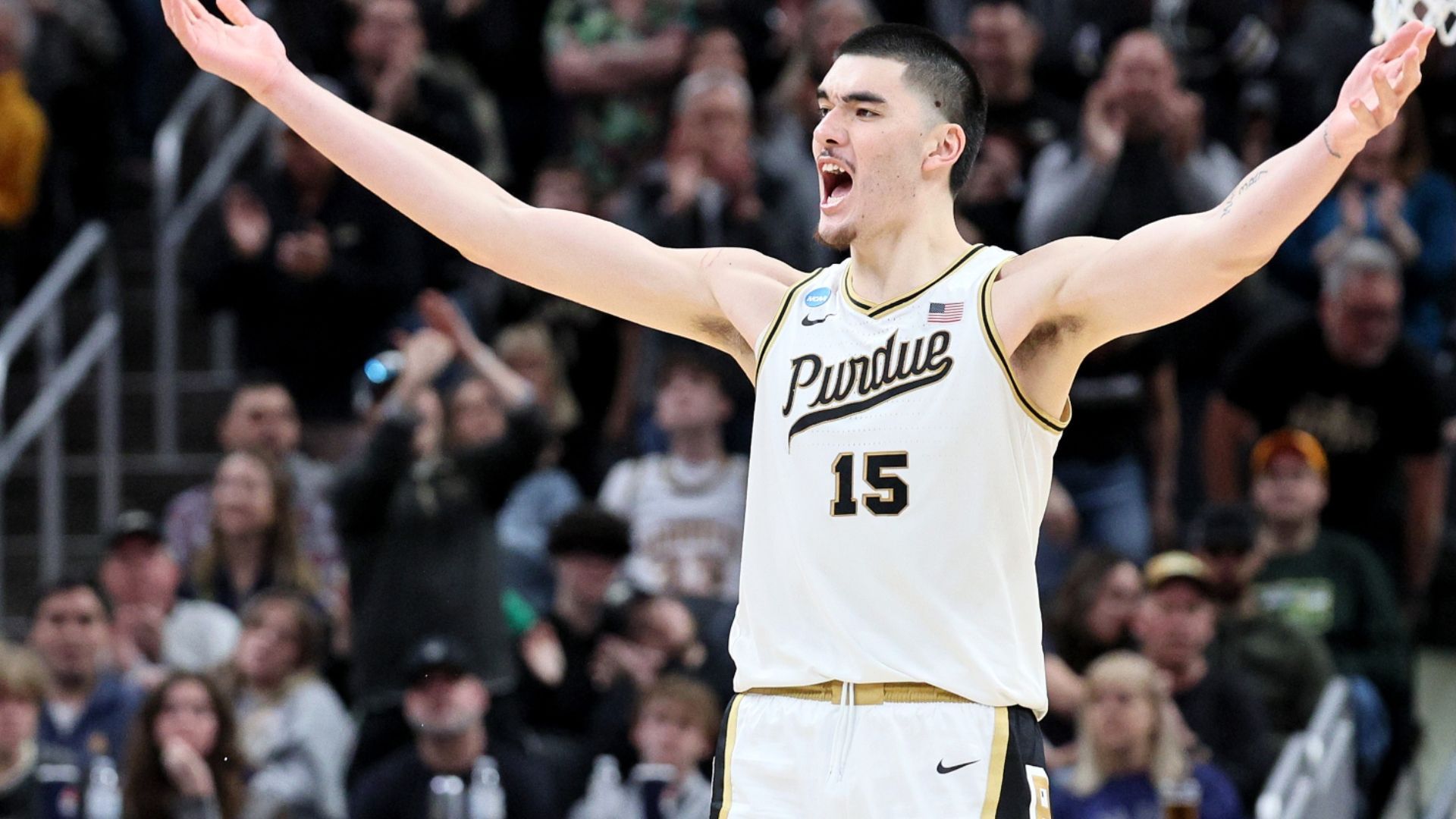
At 7'4" and 300 pounds, Purdue center Zach Edey is "the man in the middle." He occupies a lot of space for rebounds and scoring. Purdue's hopes for winning a national championship are weighing heavily on Zach Edey's shoulders. Long ago another "man in the middle" was nailed to a cross on a hillside outside Jerusalem. He was jeered at, taunted, spit on, and reviled by those passing by and even by those who were crucified on either side of Him. For six hours Jesus hung on the cross. Jesus Christ is "the man in the middle". The hope of the world was pinned on Him. He was dying for the salvation of the entire world. "For Christ also died for sins once for all, the just for the unjust, that He might bring us to God." (I Peter 3:18) This Easter, Jesus Christ, "the man in the middle," wants to get in the middle of your heart. He wants you to accept His payment for your sins. You can receive that payment by saying something like this: "Lord, thank You for being the "the man in the middle", for dying for my sins on the cross. Thank you for your payment for my sins. Get in the middle of my heart and change me from the inside out. Amen For more infomation go to: https://thefour.fca.org/
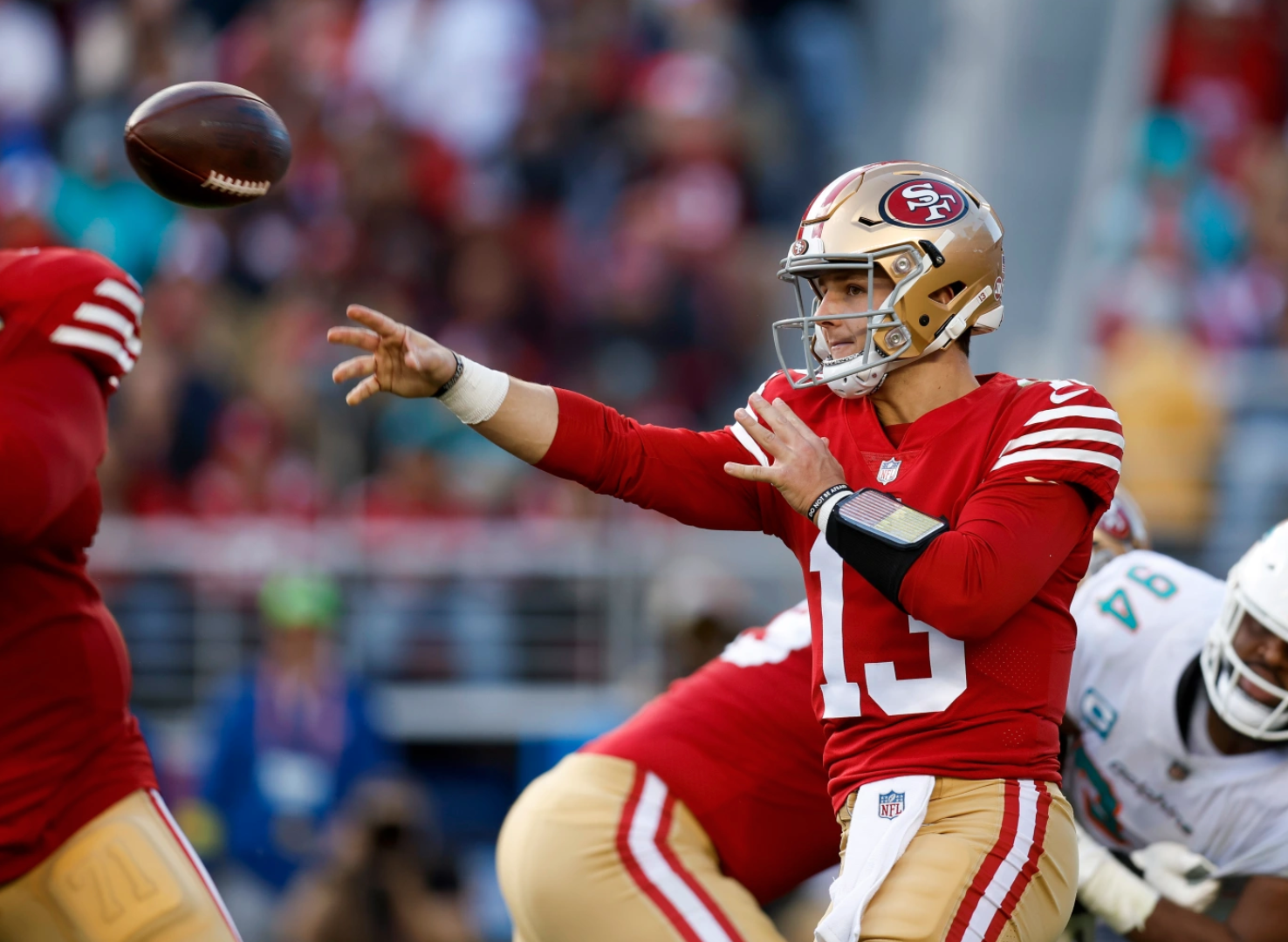
In the NFL draft, the final pick is tagged with the label "Mr. Irrelevant". Irrelevant. "Unnecessary. Not meaningful. Serving no purpose. Of no significance. Having no bearing on the matter at hand." In 2022 Brock Purdy was the final pick of the NFL draft. He was Mr. Irrelevant. Yesterday, Brock Purdy, was far from being "irrelevant". As the quarterback for the San Francisco 49ers, he led his team to a convincing win over the Dallas Cowboys and sent them into the NFL conference championship game against the Philadelphia Eagles. Brock Purdy was not "irrelevant". He is not who the NFL draft says he was. And yet with all his relevance to the success of his team, there is another level of relevance for us all. Not what the success or lack of success of our teams tells us who we are, but who God says we are. And God says, "You are relevant. You matter. I see you. You make a difference." The cross of Jesus Christ spells out our relevance. Jesus says to you, "You are worth dying for. You are worth 6 hours on a cross with nails in my hands and feet. You are worth it." Coach, take your relevance as a gift from God. He gives that to you. Relevant because God says you are. A relevance of being, not of doing. Lord, help us remember to take our relevance from who we are in relationship to You and that is one of a beloved son or daughter. No matter how good it gets or how bad it gets. Even if we feel irrelevant. Marty Mayer Northern Kentucky FCA
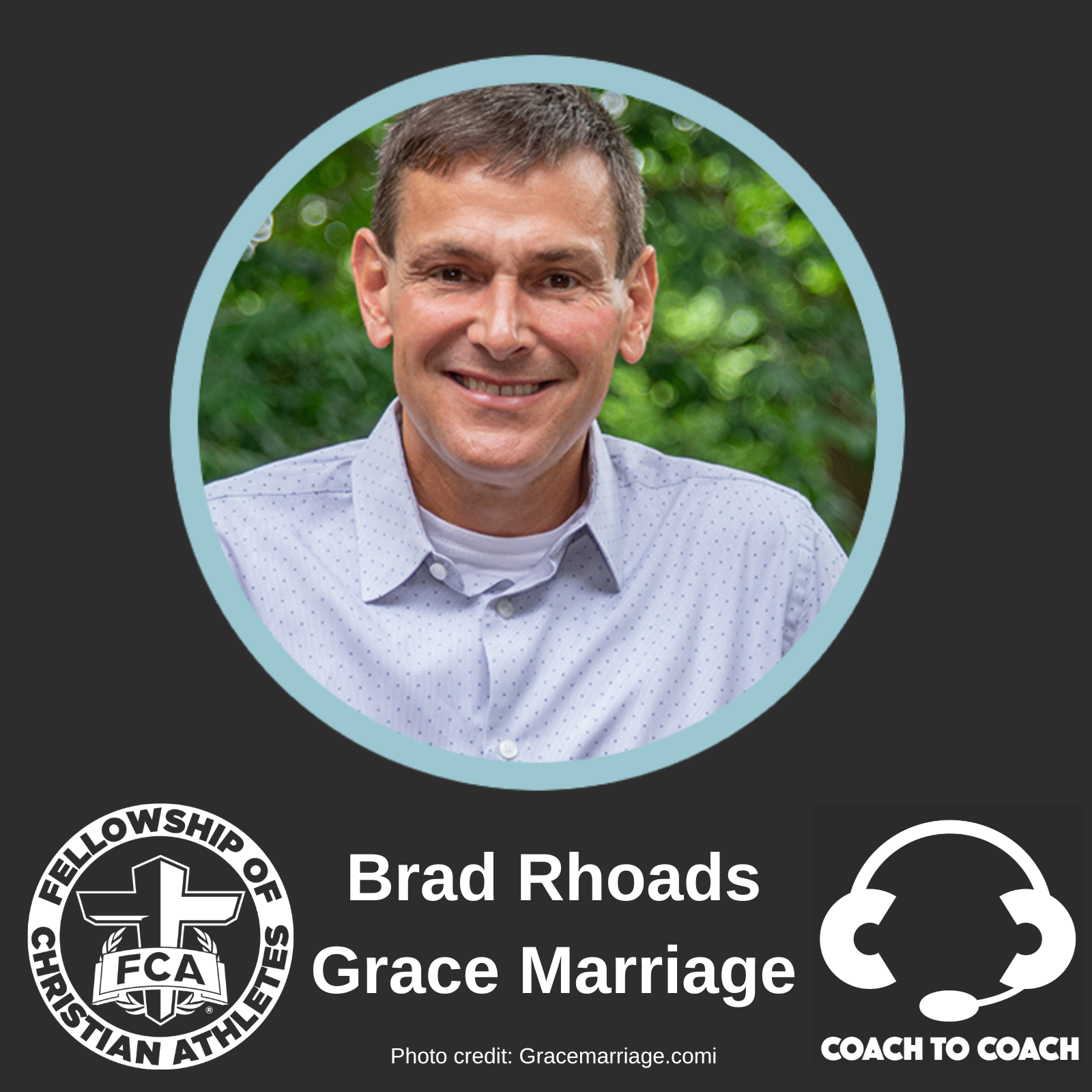
Sign up for the Coach and Spouse Getaway: nkyfca.org/getaway "Taking your marriage from stagnant and complacent to active and creative" - Brad Rhoads Coaching can be tough, and so can marriage...the two together can put even the best relationships to the test. This is why Brad Rhoads with Grace Marriage jumps on the podcast. Website: https://www.gracemarriage.com/ He shares his journey from a college tennis player to a lawyer, to a switch to full-time marriage ministry. He and his wife presented back-to-back years at our KY FCA Coach and Spouse Getaway and crushed it! Walk away with some great insights and tips on how to have a marriage that is full of life and fun Support the show Instagram: @nkyfca

Coach Bill Curry gives us what Jeremy Sheetinger calls "audio gold" on this episode! Some of the topics include: - Stories from playing for Vince Lombardi and with guys like Bart Starr and Johnny Unitas. - Coaching stops at Georgia Tech, Kentucky, Alabama, and Georgia State. - "6 Characteristics of a Champion" - "Power of the Huddle" - Reflections on navigating coaching and personal life Follow Bill on Twitter: https://twitter.com/coachbillcurry Bill's Website: http://billcurry.net/ ----- NKY FCA Website: https://nkyfca.org/
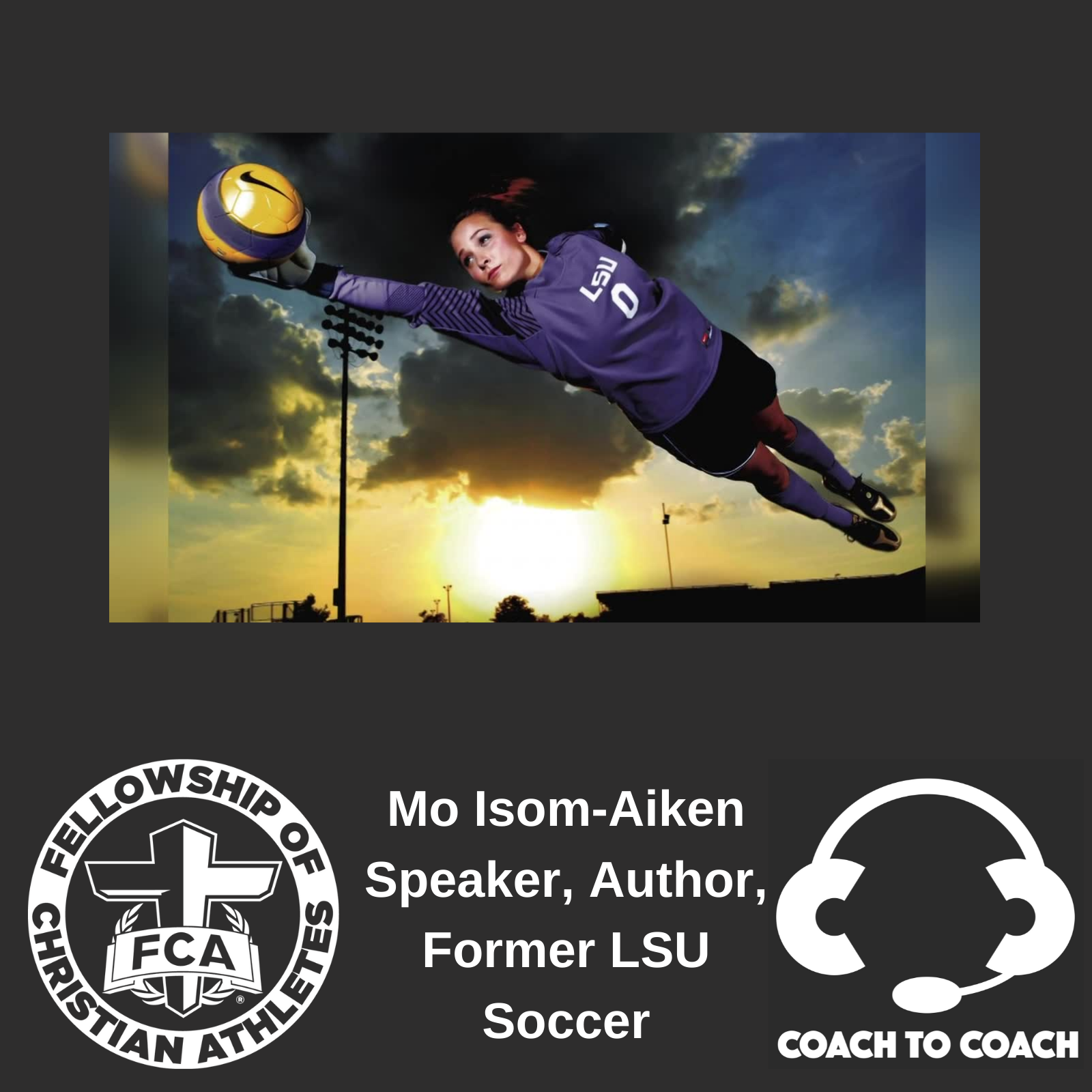
Episode Info Sign up for the FCA Coaches Challenge Here: https://fcacoacheschallenge.org Join hundreds of coaches as they study through the New Testament of the Bible together in 2021. A weekly reading plan, optional daily text reminders, and the power of knowing you're not alone in the journey! Sign up today! This is a unique episode where we hear from Mo Isom-Aiken as she shares with a group of local High School athletes here in NKY. Mo has an incredible athletic pedigree: LSU All-American Goalkeeper Sportscenter Top 10 Play for scoring a 90-yard goal SEC All-Freshman Team Trained as a placekicker for the football team LSU's all-time school record in women's soccer with 35 victories and 25 shutouts. Her family and faith are top priorities in life and it has led her to become an author of 3 books as well as fulfilling speaking engagements around the country. More info on her books and other resources can be found on: https://www.moisom.com/ The goal of this episode is to give a fly-on-the-wall perspective of Mo's story but also an increased awareness of a day in the life of an athlete living in 2021. We hope it's encouraging, inspirational, and eye-opening...and that it ultimately helps you grow as a coach!


